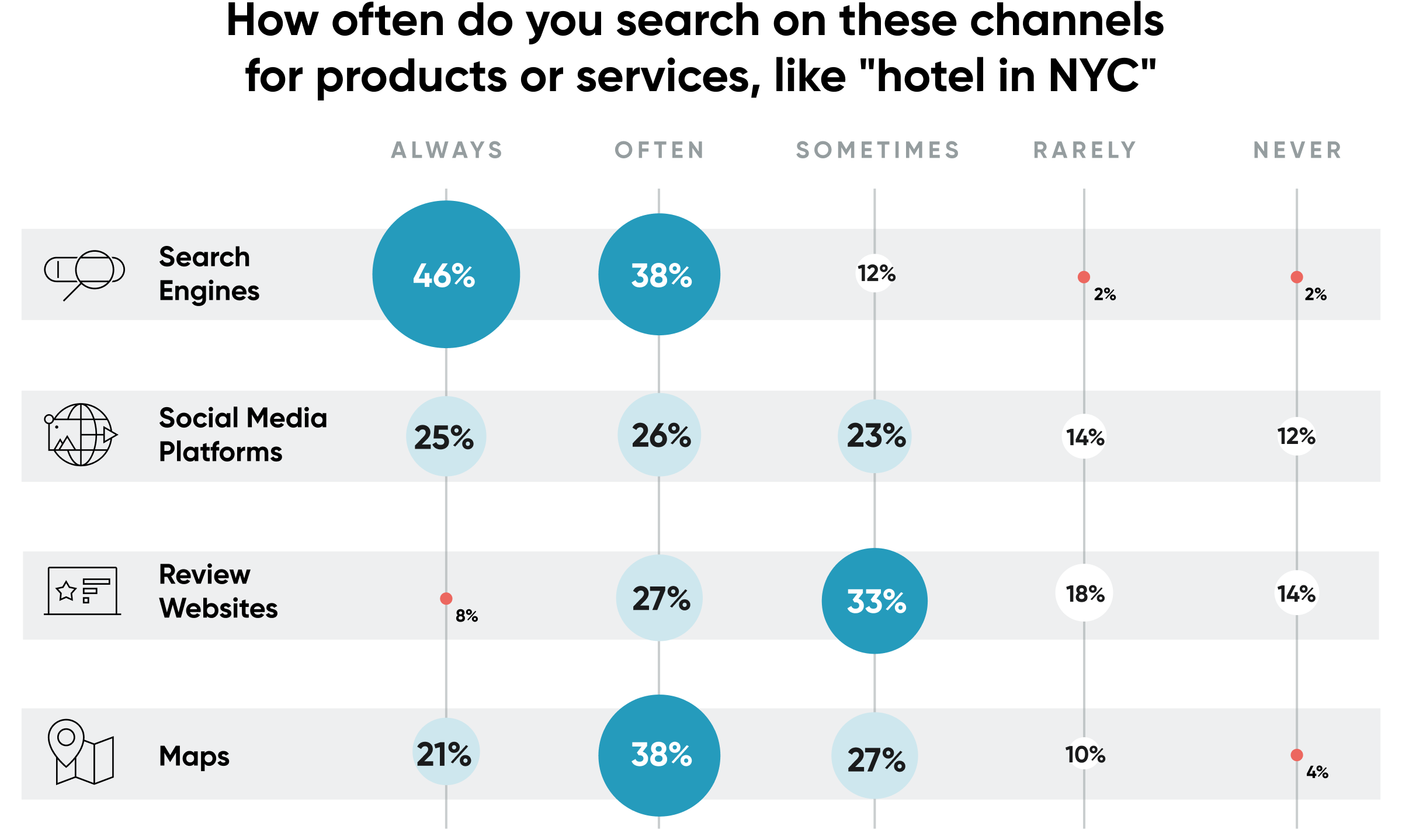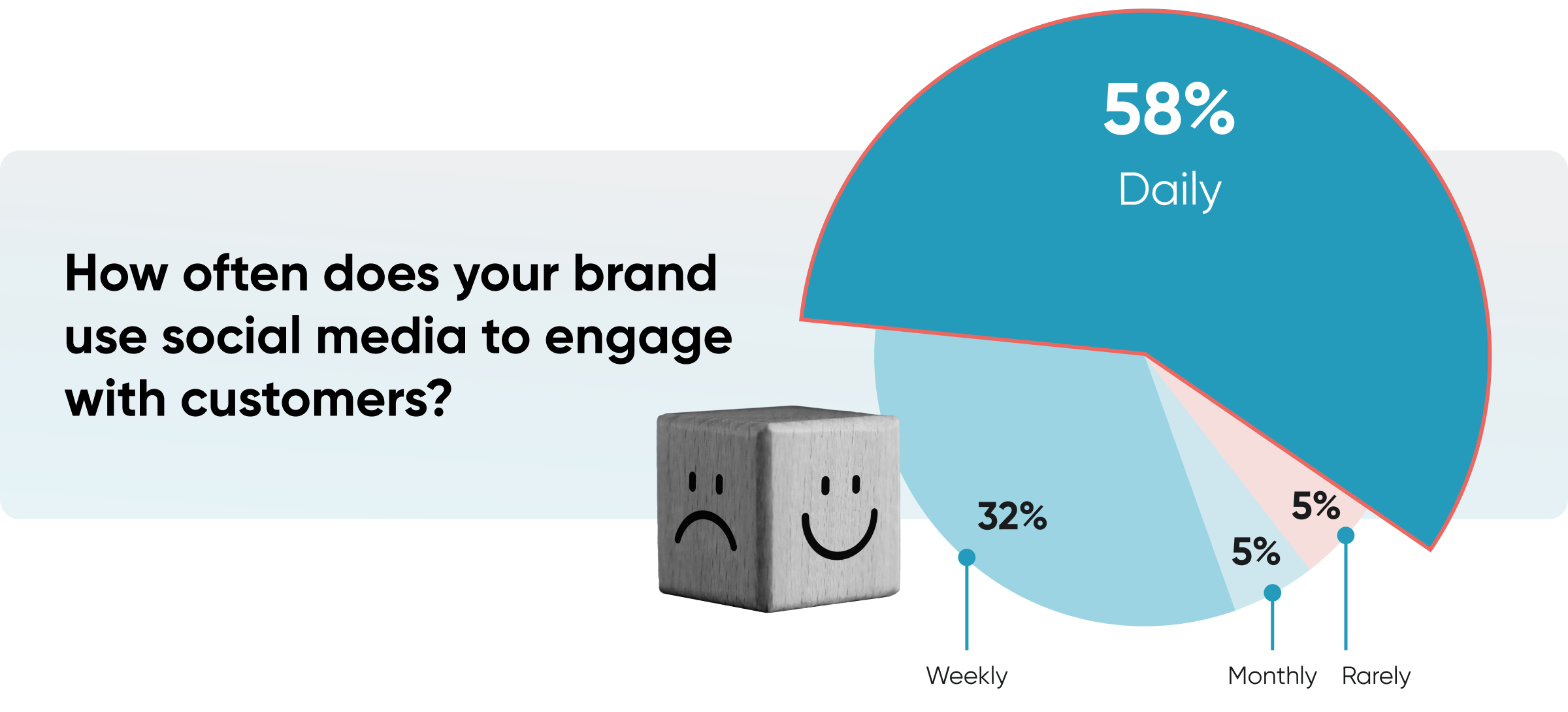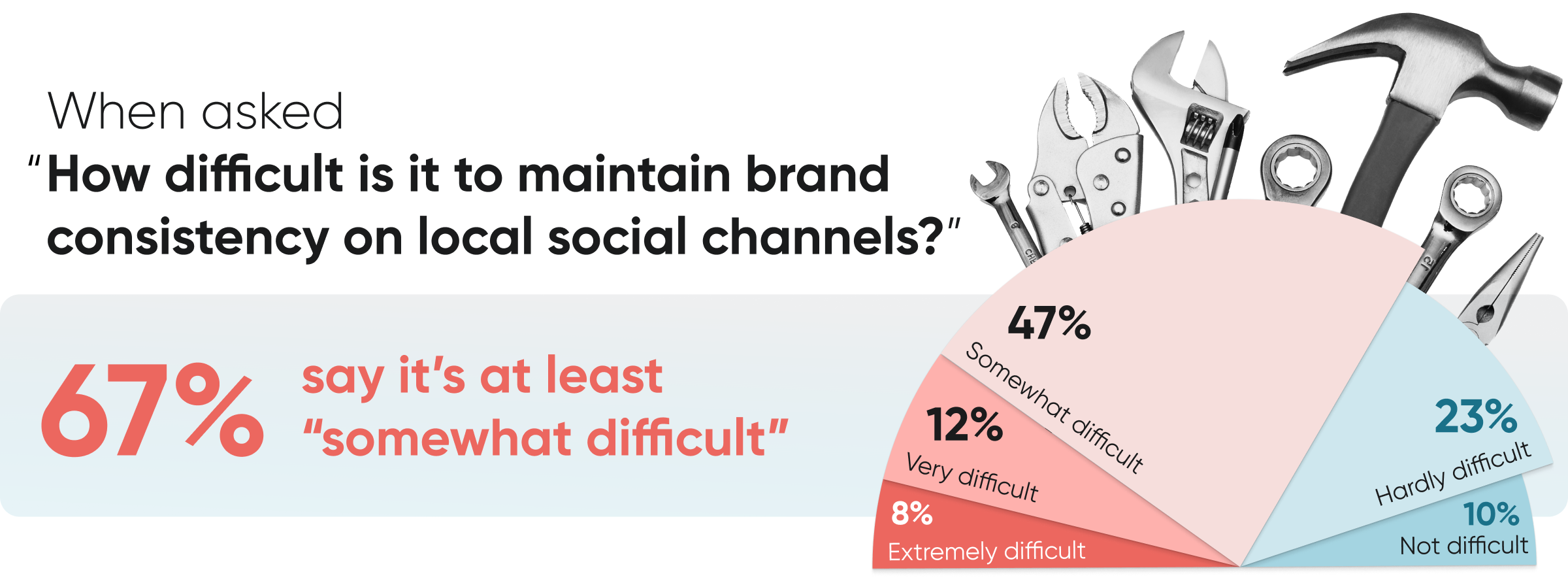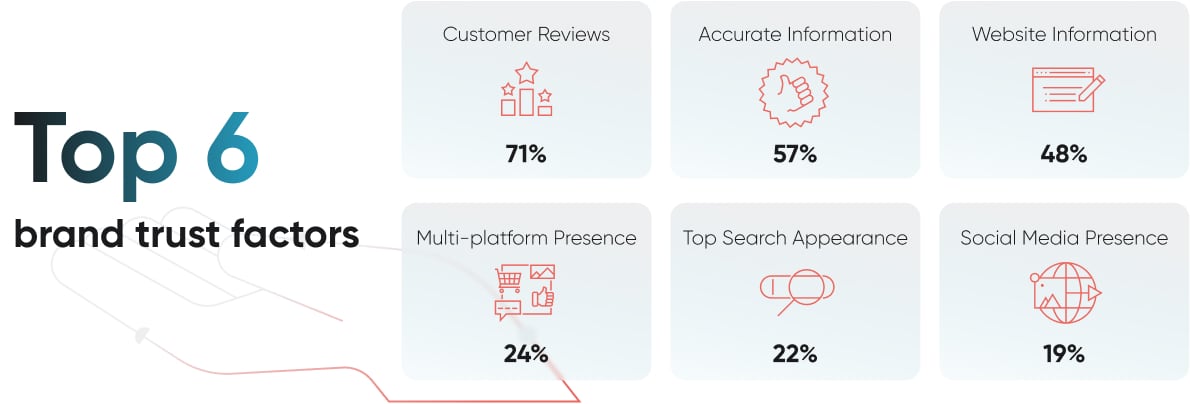Does Social Media Matter For Local Marketing?
Does Social Media Matter For Local Marketing?
Yes — and for more reasons than you might think. 77% of multi-location marketers say social media is important for their brand’s overall SEO strategy.

As people increasingly use social media to learn about local businesses, a social presence has evolved from a "nice to have" to a critical need for brands. But the idea that posting on social media has value for brands isn't new. So what is?
- The evolution of social media as a search engine
- The influence that "social signals" can have on traditional SEO
With a full 88% of users saying they search on social for more information about a brand,* our survey findings reinforce that social media is more important for local discoverability than ever. It also highlights where marketers may struggle with social management and local engagement. Here are the top takeaways multi-location marketers need in order to harness the power of social media as part of their local SEO strategy.
1. Why is social media important to local SEO?
Social is being used as a 'search engine' — not in addition to one: A majority of customers (51%) now use social media platforms to search for inform, such as "Italian restaurant near me" or "hotel in New York City."
 This trend is even more pronounced in younger users: 67% of Gen Z use social media platforms to search for information about products or services.
Social media is still a place for community building, but the research indicates that it's become much more than that. It's where customers are going in their phase of initial discovery.
Posting timely, relevant content on both the brand and the local level — across channels — will continue to be key for brands looking to attract new customers.
This trend is even more pronounced in younger users: 67% of Gen Z use social media platforms to search for information about products or services.
Social media is still a place for community building, but the research indicates that it's become much more than that. It's where customers are going in their phase of initial discovery.
Posting timely, relevant content on both the brand and the local level — across channels — will continue to be key for brands looking to attract new customers.
Social influences search itself: social signals can have an impact on "traditional" search engine results — which is part of why 69% of marketers say social media is important in their brand's overall SEO strategy.** Social signals refer to all the different ways someone can engage with social content, including likes, shares, comments, and more. And while social signals may not be major ranking factors on search engines, they do influence a search engine's ability to evaluate the relevance of content. Why? The more content a brand puts out, the more content search engines have to reference — making it more likely that the brand will show up for a certain search query. Search engines are also bringing social profiles into knowledge cards. To sum up: the broader a brand's digital presence — social included — the more chances it has to surface in search results.
2. Multi-location marketers' social media challenges
But managing social channels on the global and local levels still poses a challenge for brands.
For the reasons listed above, social media is a more important part of most brands' local marketing strategies than ever. So, it's no surprise that brands use social media frequently to engage with customers: in fact, 58% do so daily. See the full breakdown here:

Further, 93% of brands post on their social media channels once a week, with 37% of brands posting multiple times in one week.
But the majority still find it challenging to maintain brand consistency at the local level on social media while posting: 67% of respondents say that it's at least "somewhat difficult" to maintain consistency on local social channels.

Since customers use social media to discover local products and services (88%) — and are more likely to trust brands with an active social presence (59%) — this struggle means brands are losing opportunities to reach and win customers. Multi-location marketers are in need of solutions that allow them to maintain brand consistency while posting frequently on local social channels.
Brands might not be leveraging all of the right channels.
Our survey reveals that there may also be a disconnect between which social channels customers prefer and where brand marketers think they can drive engagement. 51% of customers say that YouTube is their most-used social channel, but marketers say they find Facebook to be the most effective channel for engagement - and that YouTube ranks fourth.

Certainly, both channels can drive engagement and value. But the main takeaway is that multi-location marketers may need to be active on more (and newer) channels than they think — without sacrificing brand consistency.
3. How decentralizing social media management efforts might help
Currently, only 22% of marketers say their current social media strategy is decentralized. But decentralizing your brand's social media management to enable local managers in your social strategy could be a great option. In fact, 50% of marketers say increased engagement with local audiences is a key benefit observed from decentralizing social media workflows, and 44% of marketers say better brand consistency is a key benefit observed from decentralizing social media workflows.
 It is critical to a multi-location brand's success to understand performance across each location to make sure their local strategy is resonating. But without the right resources, manually gathering insights across hundreds of locations at the post and page levels can be unscalable.
It is critical to a multi-location brand's success to understand performance across each location to make sure their local strategy is resonating. But without the right resources, manually gathering insights across hundreds of locations at the post and page levels can be unscalable.
Without a social media management tool that can support this granular, multi-location reporting, brands struggle to decentralize workflows and show local operators and owners how to grow their businesses effectively.
That said, decentralization is not the only option. With Yext Social, brands have the flexibility to manage local social centrally or in a decentralized manner — the choice is yours.
Conclusion
As social's role in search and discovery grows, it appears that multi-location marketers are capitalizing on some of these nuances. A majority say that social media is "very important" to their digital presence strategy, and 77% say it's very important for SEO.
That said, there are still visible struggles with brand consistency in posting across local social media, as well as with being present across every important social channel. This indicates that there's still an untapped opportunity for marketers to engage more customers on the local level.
From driving customer discovery to influencing purchasing decisions, social media plays a crucial role throughout today's customer journey. And as multi-location marketers look to double down on social's impact, they'll need the right tools to scale successfully.
* Survey details: The results are from an online survey of 2,312 adults who purchased something online within the past year. The survey was conducted from June 14 to 25, 2024, by Researchscape International on behalf of Yext. Results were weighted by country population, age, and gender. Respondents were from five countries: France, Italy, Germany, the United Kingdom, and the United States.
** Survey details: The results are from an online survey of 379 marketing professionals from companies with more than 10 locations. The survey was conducted from July 23 to August 20, 2024, by Researchscape International on behalf of Yext. Respondents were from three countries: France, the United Kingdom, and the United States. Topline results were weighted to be representative of the overall population.


